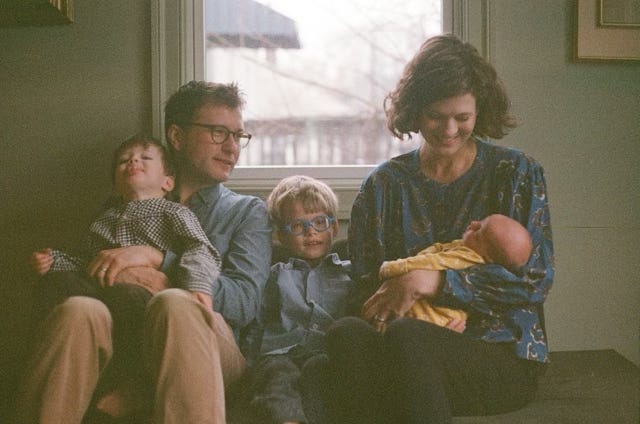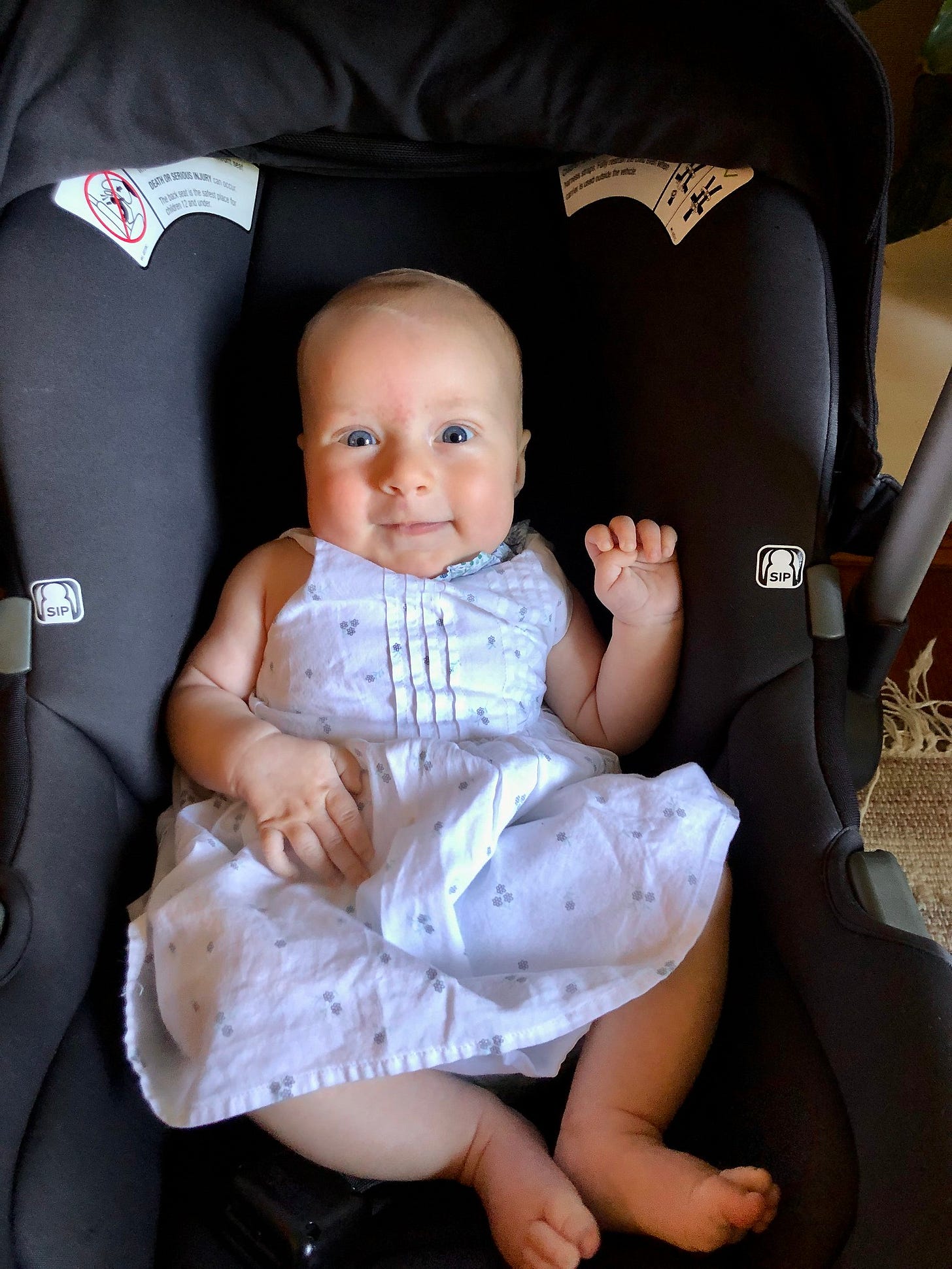Motherhood as discipline
And more thoughts on women and death
Much of the time, my experience of mothering is like passing through a refining fire. I am perpetually the dross being skimmed off the surface. I roll through the days like a nub of molten silver.
Mothering sounds unpleasant to the uninitiated, and it did to me, when I was psychologically more fragile than I am now. I’d never really faced much difficulty; I was charmed. I was loath to try hard things.
But life feels empty without hard things. Whatever your hard things may be, it is good to lean into them.
Accordingly, having and raising children feels like discipline. It feels like I’m constantly in need of correction, of alignment, of re-righting myself. Like all good discipline, mothering is exhausting, goading, all-encompassing—and life-giving. I am growing, I hope, through my daily and repeated failures. I don’t know if I am actually getting any better at mothering, but I feel my very self changing because of this role. I am not the person I was five years ago. I barely remember that woman, truth be told, but it’s not because I lost her. Rather, I feel reborn, as if I were coming into a new act of my full life.
Everything is connected to everything else. Mothering—or whatever else you are doing that is hard—is the fullness of life.
I re-read this statement from poet Alicia Ostriker recently, and it has been haunting my thoughts:
“The advantage of motherhood for a woman artist is that it puts her in immediate and inescapable contact with the sources of life, death, beauty, growth, corruption. … If the woman artist has been trained to believe that the activities of motherhood are trivial, tangential to the main issues of life, irrelevant to the great themes of literature, she should untrain herself. The training is misogynist, it protects and perpetuates systems of thought and feeling which prefer violence and death to love and birth, and it is a lie.”
It is good to avoid the lie.
Potpourri
Freedom and mortality in menopause
I find a particular brand of menopausal woman intoxicating: the red lip, the breezy linen pants, the cropped white hair, the devil-may-care attitude. There’s a power in moving through the world without the burden of being a sexual ornament. But there is also loss and pain there, with the fast approach of death and the isolated feeling of invisibility that society bestows on older women.
I’m thinking about this because Lulu sent me, unbidden and unannounced, a copy of the much-discussed novel All Fours. The book has inspired some minor uproar, with the NYT claiming it is inspiring women to wreck their marriages. Sure, that’s what Miranda July’s thinly disguised protagonist does, but I think the book is really about death and how women regard the hormonal cliff that we fall over in our mid-forties. Death comes for all of us, July reminds us, no matter how many sexual fantasies you indulge in a motel or how many ways you think you’re reinventing the institution of marriage. I find the narrator’s morality appalling, sure, but we all do terrible things when we feel afraid of the end. (It was, all in all, a great read, a totally insane romp, and she’s a fantastic sentence-level writer.)
We need better neighborhoods
I’m thinking a lot about this piece in After Babel about neighborhoods that nurture, why we need to give children more than just time off of screens. They need a neighborhood in which to roam.
Our dearest friends just moved into our neighborhood, a street over and a few blocks away, and that’s bringing us closer to that ideal, but we still lack sidewalks, accessible common space, safe roads, and deeper knowledge of one another. I’m eager to keep cultivating this change in Woolen Mills.
Sweet things
My favorite part of the day is waking up to Lucy, who always greets me with a huge smile, even if the night before was brutal, even if she’s peed through her swaddle, even if I look a fright.
Felix saying frequently, unprompted, out of the blue, “Hey, Mom! I love you!” and “How’s your day??”
Moses’s deep attention to complex texts, like the book of illustrated Pushkin fairy tales, the morals of which make absolutely no sense to me, and how he pauses me politely to ask me to define words like bivouac and equipoise, which I have to look up before I do.
Talking with Guion on the back deck after two-thirds of the children are in bed and asking each other untweetable questions in the fading light before the mosquitoes are truly terrible.
Moses making me crafts from expensive Japanese paper he pilfered from my desk and always writing “FROM MOSES TO ABBY” on each one.
Currently reading
The Invention of Nature, Andrea Wulf
Little Fires Everywhere, Celeste Ng
North Woods, Daniel Mason



Well, thanks for the tears, Moses. What a SWEET little note, RIP costly paper. (But I have a sneaking suspicion that we're doing it all wrong when we save the luxury items for the adults.)
Also, Alicia Ostriker's words are on point. I was realizing the other day that, despite the occasional frustration over lack of time to put my ideas onto paper, I feel as though my conception of the world, and therefore my creativity in response to it, has been deepened by motherhood in a way that I would not have imagined before arriving here. The gratitude I feel for this is tremendous.
I found your posts months back after googling, "Why is the GoodReads app so bad?" (Perfect description in that post, by the way.) I've read your posts on and off since then and particularly enjoy your writing related to motherhood. Your writing is highly readable.
I have 5 kids myself. I like how much you respect your children in the way you write about them. Acknowledging that motherhood is hard, and yet all the love shines through and without putting your kids in a negative light. I find it refreshing.